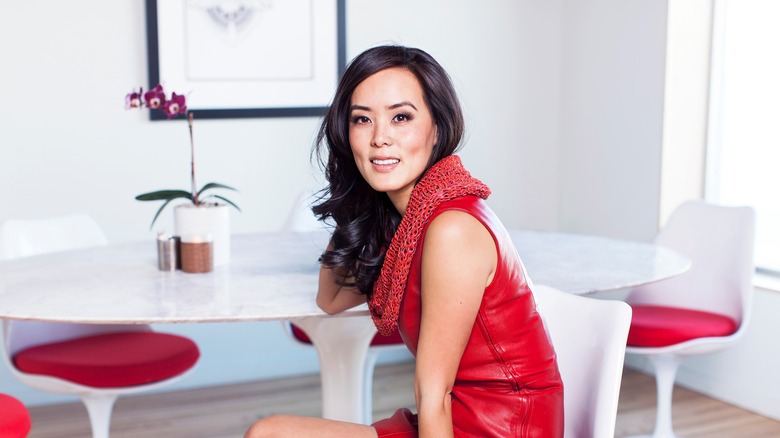Surrogacy Expert Evie Jeang On What You Need To Ask Yourself When Considering Surrogacy - Exclusive
People who want to become parents but are unable to do it the old-fashioned way — such as gay couples, women without partners, or those with medical or fertility issues — now have more options than ever to make their dream a reality. Besides adoption, in-vitro fertilization (IVF) and surrogate parenting are now possible and have enabled many people to start their own parenting journeys.
Neither IVF nor surrogate parenting, however, are easy or risk-free processes. As attorney and surrogacy advocate Evie Jeang warns, even if you don't carry your child yourself, egg harvesting is an invasive medical process with a risk of long-term side effects. And with so many players involved in such an emotionally and technically fraught enterprise, there's no guarantee everything will go as planned. As you might imagine, the process is expensive, and costs are rising quickly.
"When I started my company, Surrogacy Concierge, a surrogate's compensation was anywhere between $45,000-$80,000," Jeang said. "This is not including all the other expenses paid to the surrogate — this was just her compensation alone. Nowadays, a surrogate's compensation can be above $100,000, and this does not even include egg donor, sperm donor, or medical costs." So if you choose to have a child via surrogacy, you'd better be serious. In an exclusive interview with Health Digest, Jeang shared the important questions prospective parents need to ask themselves before embarking on their surrogacy journey.
Parents must ask tough questions about their risks and goals
Deciding whether or not surrogate parenting is right for you is a serious matter, and not one to be made lightly. Evie Jeang recommends that prospective parents start by reflecting on a handful of important, high-level questions before moving forward. "A good set of questions to ask yourself and consider are one, 'Is this going to be dangerous for me?' — two, 'Do I need to pursue surrogacy or IVF?' — three, 'Is it healthy for me?' — and four, 'Will this make me happy?"' she said.
This requires not only an honest assessment of your physical health and your long-term personal goals but also a clear understanding of surrogacy, IVF, and the involved processes. Jeang always tells her clients to do their research. "If they have friends or family members who already went through surrogacy, then ask them about their journey and what their experience was like," she said. "There's no harm in arming yourself with more knowledge, especially in such a life-changing and monumental decision like this."
Prospective parents must understand their own values, desires, and expectations
Once a prospective parent has made the decision to pursue surrogacy, the real work begins. First, Evie Jeang explains, it's critical for parents to get the right team to support them — from the right clinic and doctor to the right sperm donor and surrogate mother. This means prospective parents not only need to do serious research about potential care providers but also ask themselves what they seek in a donor and surrogate — and why. It's a deeply personal matter, and Jeang warns that finding compatible matches is not a simple process.
"It's a long journey. The process to find a suitable donor and surrogate is not instantaneous. I tell my clients all the time that not every requirement they have for a donor and surrogate will be met," Jeang said. "It's more about finding the most compatible donor and surrogate for them. Every case is different and subjective — I have yet to come across a completely identical surrogacy case."
For more information, please visit https://surrogacyconcierge.com.



